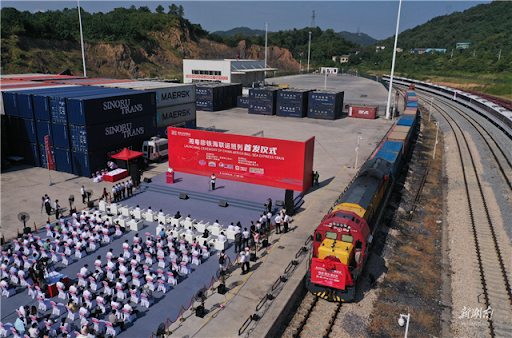Zambia bans foreign investors in haulage and logistics sector

The government of Zambia has taken a decisive step toward reinforcing its economic indigenisation agenda by officially reserving the haulage and logis
• IFC launches $225M platform to back early-stage startups in Africa, Asia, Middle East
• Ethiopian Airlines kicks off China-Spain cargo route
• Astral Aviation launches new cargo route
The government of Zambia has taken a decisive step toward reinforcing its economic indigenisation agenda by officially reserving the haulage and logistics industry for Zimbabwean citizens. This move is part of a broader initiative to empower local businesses and ensure that key economic sectors are controlled by indigenous players.
Regulatory laws
The change is anchored in the Finance Act of 2024, which amends the Indigenisation and Economic Empowerment Act [Chapter 14:33] through General Notice 1345A of 2024. The revised law specifically prohibits foreign entities from operating in any aspect of goods, cargo, mineral ores, or fuel transportation by road within the country’s borders, unless they meet certain localisation criteria.
In response to the new regulations, foreign companies currently involved in the haulage and logistics sector are required to submit compliance proposals to the Ministry of Industry and Commerce. These submissions must outline how their operations will contribute to Zimbabwe’s socio-economic development. Key expectations include the creation of employment opportunities for locals, the transfer of technical and managerial skills, and support for domestic value chains. Authorities are also insisting on full regulatory compliance, with oversight from institutions such as the Reserve Bank of Zimbabwe (RBZ), Zimbabwe Revenue Authority (ZIMRA), and National Social Security Authority (NSSA).
Government officials have reiterated that the primary goal of this policy is to stimulate local economic growth and ensure sustainable participation of Zimbabwean citizens in vital sectors. According to Dr. T. Utete Wushe and Eng. J.P. Makumbe, the respective Secretaries for Industry and Commerce and Transport and Infrastructural Development, aligning foreign investment with national priorities is critical. They emphasised that long-term success in the logistics space depends on inclusive practices that uplift the local population and fortify national resilience.
Source : LOGISTICS BUSINESS AFRICA





